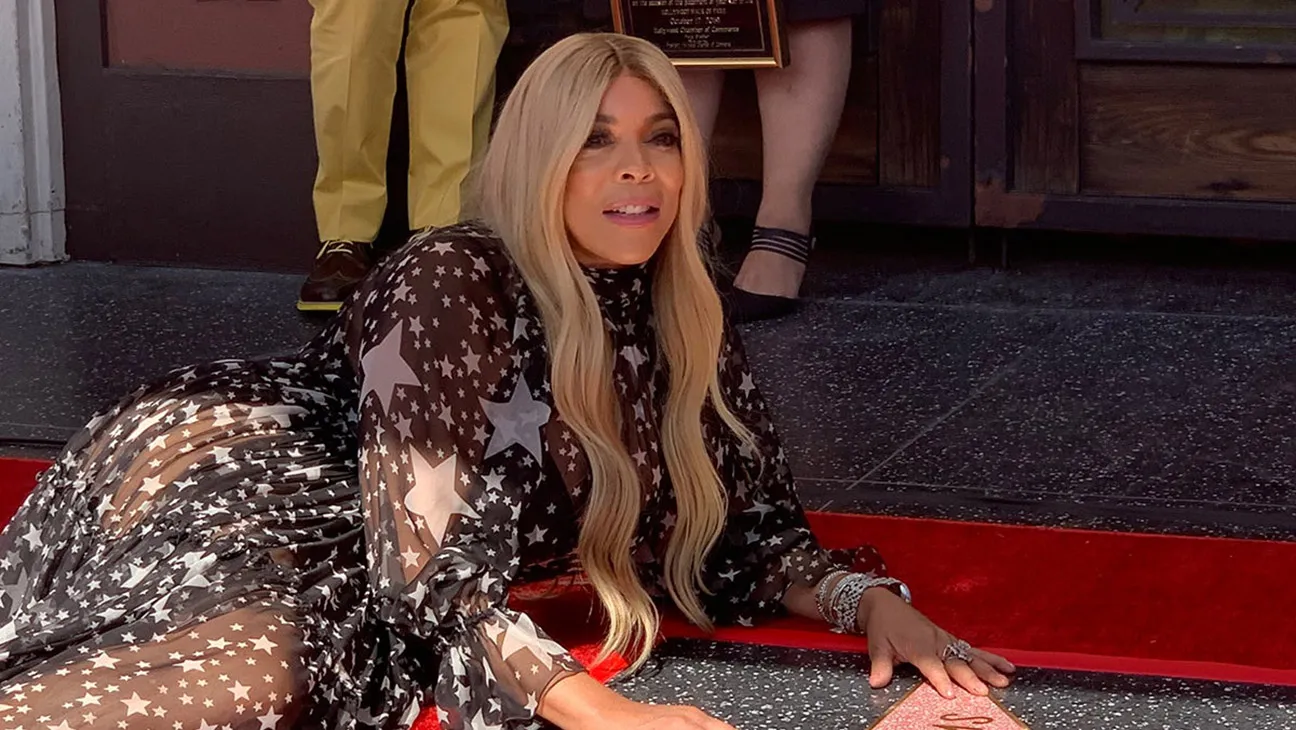‘Where Is Wendy Williams?’ Producers Say They Were “Worried” About Her Care Under Her Guardianship
Producers of “Where Is Wendy Williams?” commented on how the docuseries reveal the “dire” situation that Wendy Williams… The post ‘Where Is Wendy Williams?’ Producers Say They Were “Worried” About Her Care Under Her Guardianship appeared first on LOVEBSCOTT.


Producers of “Where Is Wendy Williams?” commented on how the docuseries reveal the “dire” situation that Wendy Williams is in under a conservatorship.
During an awards consideration panel in Los Angeles, Where Is Wendy Williams? executive producers Mark Ford and Erica Hanson said they were “worried” about Williams’ circumstances during production, via People. They noticed that she had been living alone, without food in her refrigerator, and tried to get in touch with her family.
“The deeper we got into it, we didn’t want to let go of Wendy until we got her back in touch with her family,” Ford said. “Because we felt that at a certain point that’s who’s going to be there for her to care for her.”
Toward the end of production on the doc, Ford recalled the producers were getting “very, very worried” and telling her manager, who was the only other person coming into her apartment, that something needed to be done to help her.
“This is getting very dire and scary,” he added. “And because she was under a guardianship, her family couldn’t just fly up and hang out and decide to get involved in her medical care. They were removed from that process by the courts so they could face legal ramifications if they tried to get too involved.”
Sabrina Morrissey became Williams’ court-appointed guardian in 2022 after Wells Fargo claimed that she was an “incapacitated person” and a “victim of undue influence and financial exploitation.” At the time, the former talk show host contested the guardian appointment, noting that her health had improved and she was “absolutely” of sound mind following treatment for Graves’ disease and thyroid issues. Later, it was revealed that her son, Kevin Hunter Jr., was responsible for the financial exploitation.
During the panel conversation, Ford said that’s when the documentary began taking a turn and trying to “expose what these guardianships are like” when the family is not involved. Hanson added that it felt “incomprehensible” that her son didn’t know where she was and couldn’t call her, even though he had previously tried helping “his mother with all of her addiction issues.”
“I just think, in the end, you really see what happens when a guardian has complete control and the family is cut out and they don’t know how she’s being treated medically,” Hanson explained. “And they don’t know what’s happened with her finances.”
Ford said, “It’s a very complicated process for [her family]. But I think you could see in the film, they’re a lovely group of people who care about their sister, daughter, mother, and want the best for her, and who better to be involved in her care than those people, not a stranger.”
Morrissey tried to keep the documentary from airing by filing a lawsuit against Lifetime‘s parent company A+E Networks, citing that the contract brokered to shoot the project wasn’t valid because Williams had neither the legal nor mental capacity to authorize her participation. However, the former Wendy Williams Show host was an executive producer on the project alongside Hunter Jr. and her jeweler-turned-manager, William Selby.
The guardian’s complaint claimed that the four-and-a-half-hour documentary was a “blatant exploitation of a vulnerable woman with a serious medical condition who is beloved by millions within and outside of the African American community.” Morrissey’s temporary restraining order was granted before being reversed by a higher court for violating the network’s First Amendment rights.
When the court records were unsealed in March, they indicated that Williams’ guardian, who allegedly would not return the producers’ calls throughout production, only fought to keep the documentary from airing after she saw the trailer for the film on Feb. 2. The nearly four-minute look at Where Is Wendy Williams? made it clear Morrissey would not be portrayed positively.
“Only after seeing the documentary’s trailer and realizing her role in Ms. [Williams’] life may be criticized did Ms. Morrissey enlist the courts to unconstitutionally silence that criticism,” A+E Networks attorney Rachel Strom wrote at the time.
Days before the project aired, news broke that Williams had been diagnosed with aphasia and frontotemporal dementia, in addition to her Graves’ disease and lymphedema, which is the buildup of fluid in soft body tissues.
In an interview with The Hollywood Reporter following the doc’s release, Ford said that “if we had known that Wendy had dementia going into it, no one would’ve rolled a camera,” adding that “it got to a point where we were more worried about what would happen to Wendy if we stopped filming than if we continued.”
via: THR
The post ‘Where Is Wendy Williams?’ Producers Say They Were “Worried” About Her Care Under Her Guardianship appeared first on LOVEBSCOTT.










![Brad Pitt Details Battle With Alcoholism and Recovery: ‘I Needed to Wake the F–k Up’ [Video]](https://www.lovebscott.com/wp-content/uploads/2025/06/9f9717940e7e46a09cb3a7f1ceabcb14_md.jpg.webp)
![Fans Rip Miley Cyrus & Naomi Campbell For ‘Rude’ Behavior At Meet & Greet [Video]](https://www.lovebscott.com/wp-content/uploads/2025/06/326a033fbe1c441eb92773e03a65cc36_md.jpg.webp)
